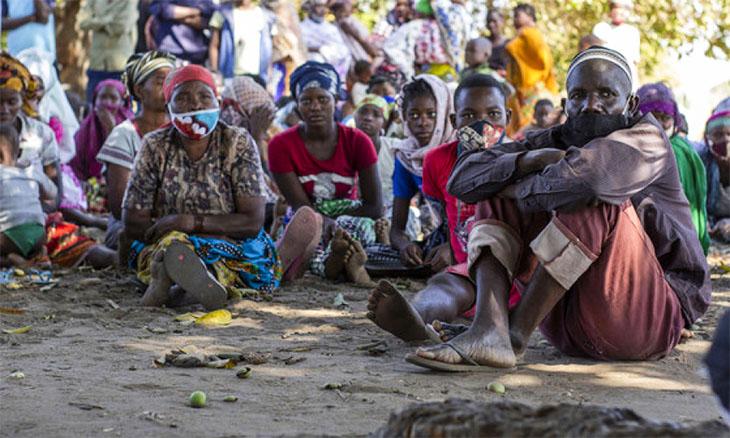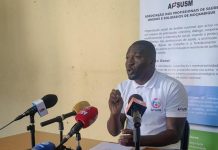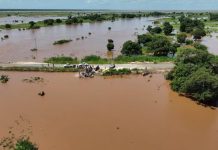Africa-Press – Mozambique. The government and humanitarian organisations continue to provide assistance to the displaced, but it seems that they are not managing to solve the basic problems, and many are still living in inhumane conditions.
Ibo Island in Cabo Delgado province is at risk of becoming a humanitarian crisis as a result of the high number of survivors of terrorist attacks congregating there. The situation is also serious in Matemo, an island which has seen arrivals since the March 24 attack on Palma, when the sea became the only way to escape the conflict.
One of the biggest problems facing families is hunger, and many of them survive thanks only to the solidarity of other displaced people.
“I came to Matemo 27 days ago with my wife and four children, and we never received any help. We eat thanks to people who sometimes give us a kilo of rice or flour. When there is nothing, we all go to bed hungry,” said Sumail Saíde, a displaced person who fled Namandingo village in Palma district as the terrorist attacks intensified.
The situation is considered critical, especially for the children, who are less well equipped to deal with hunger.
“I’ve been living here since the town of Palma was attacked, about three months ago. What little we get, we reserve for the children, who can’t bear the hunger. When we don’t have anything to cook, we eat dry cassava with coconut or peanuts that we ask for from the people who sell at the local market,” recounted Halima Anchide, a displaced person from Olumbe, Palma, and who lives in Matemo with three children.
Another problem the IDPs face is the lack of decent accommodation. Most sleep in makeshift tents made of sticks and covered with grass. Others, unable to manage even this, sleep in the open, waiting for help to build a shelter and protect themselves from the sun, the wind and the cold.
“I didn’t receive a canvas like the others who arrived first. So, I tied a plastic to the side of this hut to reduce the cold. I’ll sleep here until I get sticks and grass to build my hut,” said Mariamo Selemane, an elderly woman who fled Macomia more than two months ago.
In addition to the lack of food, clean water and decent accommodation, displaced people lack access to most basic services.
“Here we have a small health post that, in addition to not having enough medication, is far away. Pregnant women cannot walk there. The children have stopped studying, because we don’t have a school,” says Halima Saíde, another displaced person from Palma.
The situation in Matemo is serious, and beyond the capacity of the local government to deal with. Even with the help of humanitarian organisations, it is unable to address the needs of the approximately 35,000 IDPs spread across the islands of the Quirimbas archipelago.
“We can’t solve all the problems, due to the high number of displaced people,” says Issa Tarmamade, Ibo administrator, launching an appeal for more humanitarian aid. “Everyone needs a little bit of everything. People arrive In Matemo every day. According to our register, which is not updated, at the beginning of this month, we had 4,000 people, and by now there will be more. In addition to Matemo, we have the Quirimba, where more than 800 families from the Quissanga district are located. At Ibo, there are about 5,000 people,”
To minimise their suffering, the displaced families are acting in solidary with each other, but the situation remains critical and many choose to leave for Pemba, where, in addition to safety, they hope to find ways to make a living.
This is the background against which Luísa Meque, the president of the National Institute for Risk and Disaster Management (INGD) visited the island of Ibo. After seeing the humanitarian drama in Matemo, Meque promised to find a solution.
“We came to assess the situation and now we see the reality of what is happening here on Matemo Island. We’ll look for immediate solutions,” he promised, without advancing details.
In addition to Ibo, which receives most of the displaced from Palma, Macomia and Quissanga, the INGD president visited the transit centre for displaced people in Pemba, and the beach in Paquitequete, where she witnessed the arrival of yet more vessels bearing survivors of the terrorist attacks in Cabo Delgado.
By
Hizidine Acha






